Yet there are certain classes of fact eternally more necessary than others, and it is with these that literature must first bestir itself.They are not hard to distinguish, nature once more easily leading us; for the necessary, because the efficacious, facts are those which are most interesting to the natural mind of man.Those which are coloured, picturesque, human, and rooted in morality, and those, on the other hand, which are clear, indisputable, and a part of science, are alone vital in importance, seizing by their interest, or useful to communicate.So far as the writer merely narrates, he should principally tell of these.
He should tell of the kind and wholesome and beautiful elements of our life; he should tell unsparingly of the evil and sorrow of the present, to move us with instances: he should tell of wise and good people in the past, to excite us by example; and of these he should tell soberly and truthfully, not glossing faults, that we may neither grow discouraged with ourselves nor exacting to our neighbours.
So the body of contemporary literature, ephemeral and feeble in itself, touches in the minds of men the springs of thought and kindness, and supports them (for those who will go at all are easily supported) on their way to what is true and right.
And if, in any degree, it does so now, how much more might it do so if the writers chose! There is not a life in all the records of the past but, properly studied, might lend a hint and a help to some contemporary.There is not a juncture in to-day's affairs but some useful word may yet be said of it.
Even the reporter has an office, and, with clear eyes and honest language, may unveil injustices and point the way to progress.And for a last word: in all narration there is only one way to be clever, and that is to be exact.To be vivid is a secondary quality which must presuppose the first;for vividly to convey a wrong impression is only to make failure conspicuous.
But a fact may be viewed on many sides; it may be chronicled with rage, tears, laughter, indifference, or admiration, and by each of these the story will be transformed to something else.The newspapers that told of the return of our representatives from Berlin, even if they had not differed as to the facts, would have sufficiently differed by their spirits; so that the one description would have been a second ovation, and the other a prolonged insult.The subject makes but a trifling part of any piece of literature, and the view of the writer is itself a fact more important because less disputable than the others.Now this spirit in which a subject is regarded, important in all kinds of literary work, becomes all-important in works of fiction, meditation, or rhapsody; for there it not only colours but itself chooses the facts; not only modifies but shapes the work.And hence, over the far larger proportion of the field of literature, the health or disease of the writer's mind or momentary humour forms not only the leading feature of his work, but is, at bottom, the only thing he can communicate to others.
In all works of art, widely speaking, it is first of all the author's attitude that is narrated, though in the attitude there be implied a whole experience and a theory of life.An author who has begged the question and reposes in some narrow faith cannot, if he would, express the whole or even many of the sides of this various existence; for, his own life being maim, some of them are not admitted in his theory, and were only dimly and unwillingly recognised in his experience.
Hence the smallness, the triteness, and the inhumanity in works of merely sectarian religion; and hence we find equal although unsimilar limitation in works inspired by the spirit of the flesh or the despicable taste for high society.So that the first duty of any man who is to write is intellectual.Designedly or not, he has so far set himself up for a leader of the minds of men; and he must see that his own mind is kept supple, charitable, and bright.Everything but prejudice should find a voice through him; he should see the good in all things; where he has even a fear that he does not wholly understand, there he should be wholly silent; and he should recognise from the first that he has only one tool in his workshop, and that tool is sympathy.The second duty, far harder to define, is moral.There are a thousand different humours in the mind, and about each of them, when it is uppermost, some literature tends to be deposited.Is this to be allowed? Not certainly in every case, and yet perhaps in more than rigourists would fancy.
It were to be desired that all literary work, and chiefly works of art, issued from sound, human, healthy, and potent impulses, whether grave or laughing, humorous, romantic, or religious.
Yet it cannot be denied that some valuable books are partially insane; some, mostly religious, partially inhuman;and very many tainted with morbidity and impotence.We do not loathe a masterpiece although we gird against its blemishes.We are not, above all, to look for faults, but merits.There is no book perfect, even in design; but there are many that will delight, improve, or encourage the reader.















